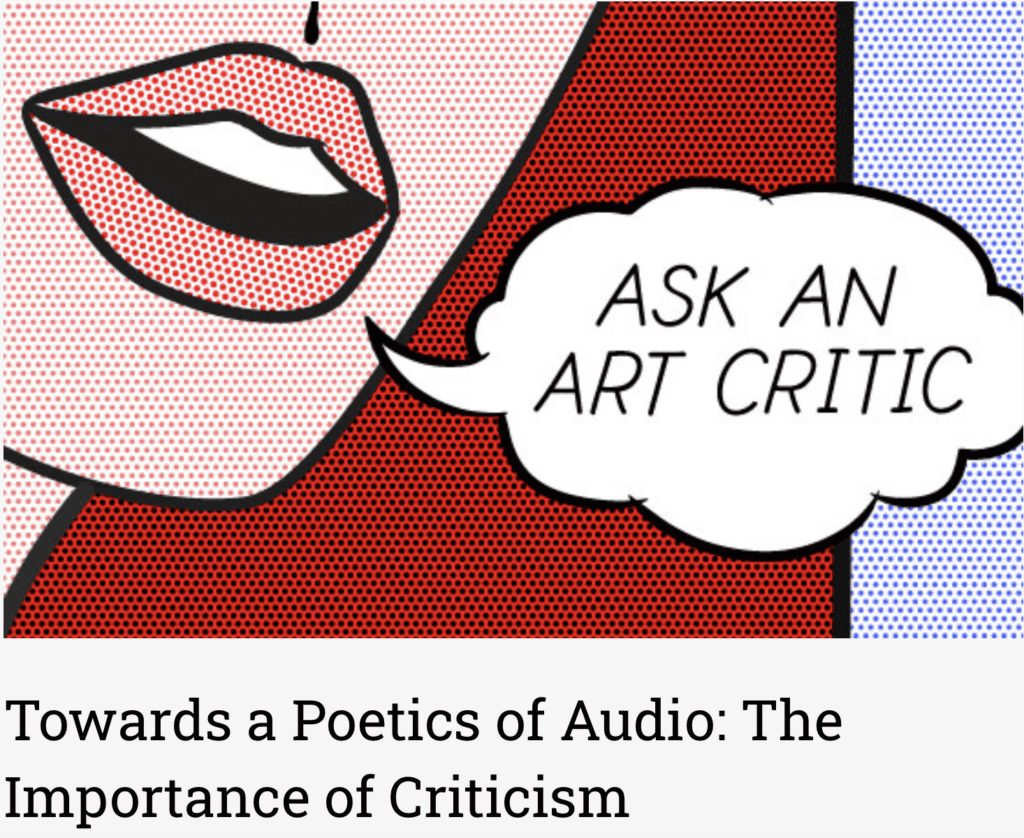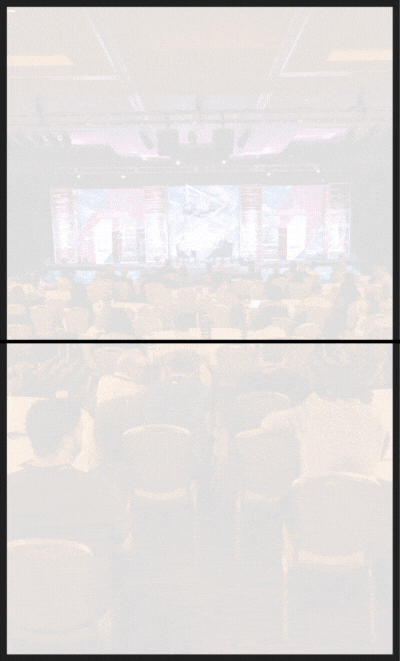This article is the first in a three-part series. We'll be covering three topics: critique, feedback, and call-outs. We’ll discuss the differences, the necessities for each, and how to give and receive them, especially given the particular natures of this digital medium and era.

As a critic who fell into this work a bit by accident, I’ve spent a lot of time working out the distinctions necessary for something to qualify as “critique” and what’s crucial about its delivery in order to be effective.

And as a critic who came into this work with a huge sum of intention, I've spent a lot of time… still making mistakes anyway! Discussing what is and is not critique is so vital, both for listeners and for creators. I think we dive into our thoughts, we should talk up the amazing Ma'ayan Plaut of PRX, who wrote this great guide on feedback and criticism — topics we'll touch on for our next few conversations here.

We’ve got a three-part series planned for you covering three topics: critique, feedback, and call-outs. We’ll cover the differences, the necessities for each, and how to give and receive them, especially given the particular natures of this digital medium and era. The internet has given us a lot of wonderful things, but it’s also severely impacted the cycle of criticism and reception and how big a part audience reactions play.
A Basic Distinction and Definition
Critique considers a work as part of a whole and as part of a corpus of works. Feedback usually does not look at that huge picture and focuses only on the work itself.
Feedback and critique both think about impact, but feedback talks about its delivery or improvement of the delivery, and critique talks about what is actually accomplished in the work's published form.

What podcast journalists and critics do is critique. Here's something I think we should cover right up front: by making a podcast (or any art) public at all, you do necessarily open it up to critique. Sometimes, podcasters, marketing departments, etc. do request that a professional writes a review for a publication — but I think part of making public art is accepting that it could be discussed by professionals whether or not you ask for it.

You're contributing to an always growing body of work, to a genre, a style, and so on. The analysis of impact, meaning, placement, and reaction to a work of art is part and parcel of that body even existing. And honestly, this is part of what makes critique so important: it considers the whole, and not just the whole in this present moment, but the past and its influence, the present and its commentary, and the future and its potential.


Exactly! I can say that there's a very low chance of a podcast critic finding a small, new show and ripping it to shreds. It's something you should consider as you get started, though. We love this medium and we want to talk about its ups and downs. If something gets big seemingly out of nowhere, we'll be paying attention!
So, we've talked about how to reach out to the press. Should we talk about what to do when you don't reach out, but someone's written about your work anyway?

Definitely! That can be a really awkward situation, especially if the critic seems to have missed your point or goal or has negatively critiqued something you love. Or even positively critiqued it for something accomplished totally by accident and unintentionally. (Sidebar: Critique is not inherently negative. There's positive and negative critique, and a critic's work is often a blend of both!)
First Rule of Thumb: Try not to panic. As a person with anxiety, I know this one is rough. Pay attention to your systems, and get away from the internet for a moment. It will still be there when you're able to interact with it fully.

One thing I'd recommend, if you feel yourself getting embarrassed or disappointed or even angry, is to make a list of positive and negative commentary. You're likely to find that there's more positive than you think! People generally tend to feel the impact of negative more than positive. What seems like a scathing review could actually be filled with a lot of praise when you take a step back.


And take critique of all kinds in the way it’s meant: short of retooling whatever you have already released, often untenable for a lot of forms of art — yes, podcasts too — the one thing you can do is move forward with whatever you have read in mind. Change is scary, but purposeful, mindful change is good. Maybe you’re improving something you didn’t know needed to be improved, or maybe you’re noticing something you did unintentionally that now you know to look for and keep. Your podcast is your baby, and babies have to grow.

Absolutely! Because it's your baby, though, it's understandable if you feel defensive. That's your art! If you're trying to figure out what parts of you are being defensive and what parts of you genuinely disagree with something a critic says, I'd first off recommend asking someone you trust. Another great tactic is looking at the critic's other reviews. Do you agree with their stances on other podcasts? You might want to add some more weight to their words. Do you disagree on those too? It might just be a difference in taste. Not every podcast is for every person. You can remind yourself that just because your podcast wasn't for this person, that doesn't mean you're doing anything wrong.

Podcast critics are a blossoming breed of critic right now. You’ll read some critique that’s written by critics whose specialty is different mediums, like TV or books, and some that’s by people who are making podcasts their specialty (like me and Wil!). Something I can’t emphasize enough is that podcast critique is still being born.
This essay by Sarah Montague talks about the lack of a critical language, a language that is mostly organically designed to be able to talk about forms, tropes, and themes with reference to the larger world of ideas that influence them. I highly recommend you read this piece for an even more in-depth discussion on the importance and place of criticism, and why we need a critical practice for audio and its own language, not just language cribbed from other mediums. (I also talked about this article and related subjects in an interview with Tamara Kissane for Howlround!)

Next time, we'll tap into feedback from listeners, friends, and others who don't work in critique — but for right now, bask in those gorgeous words by some of the people who love this medium most!




Join the Movement